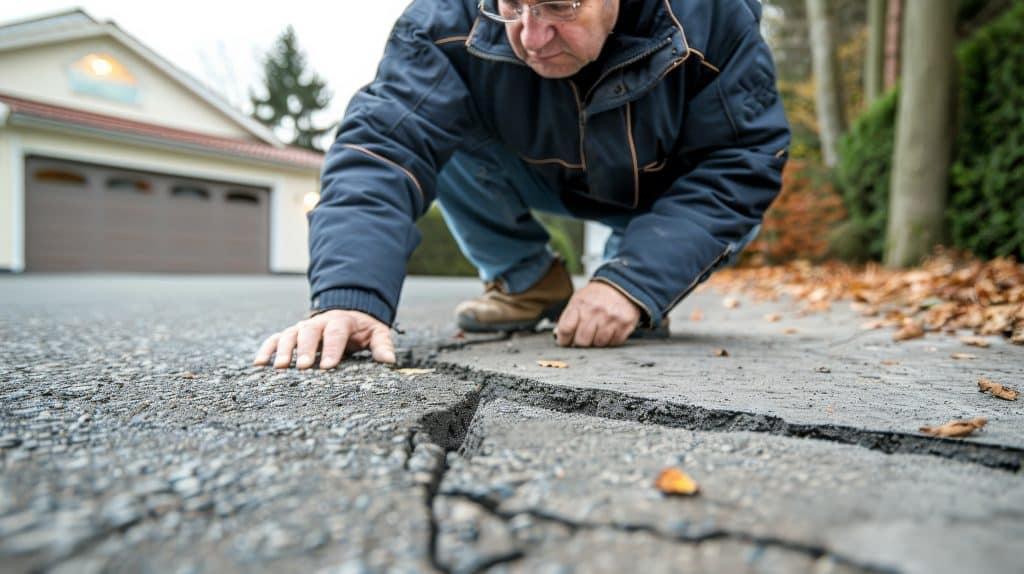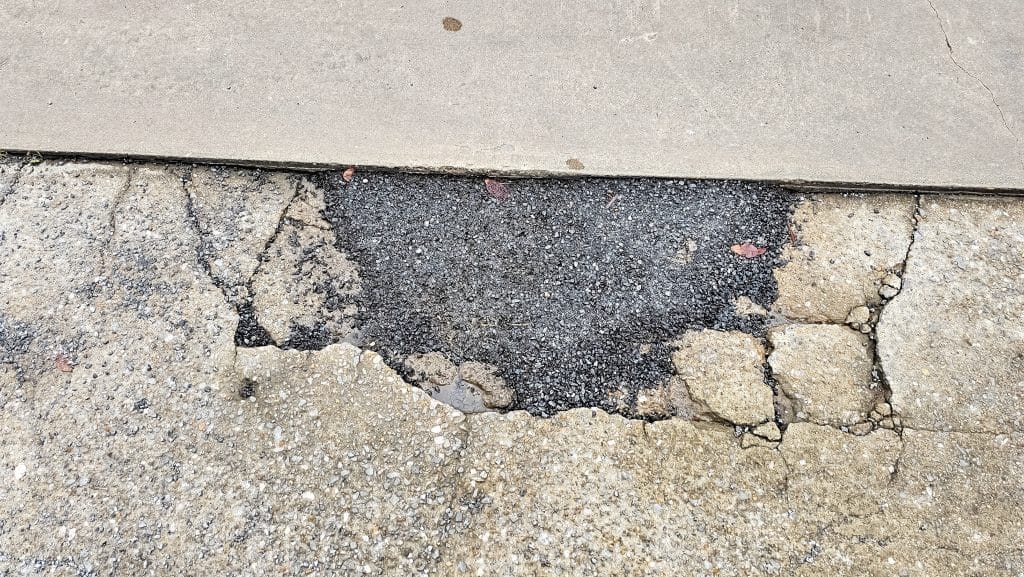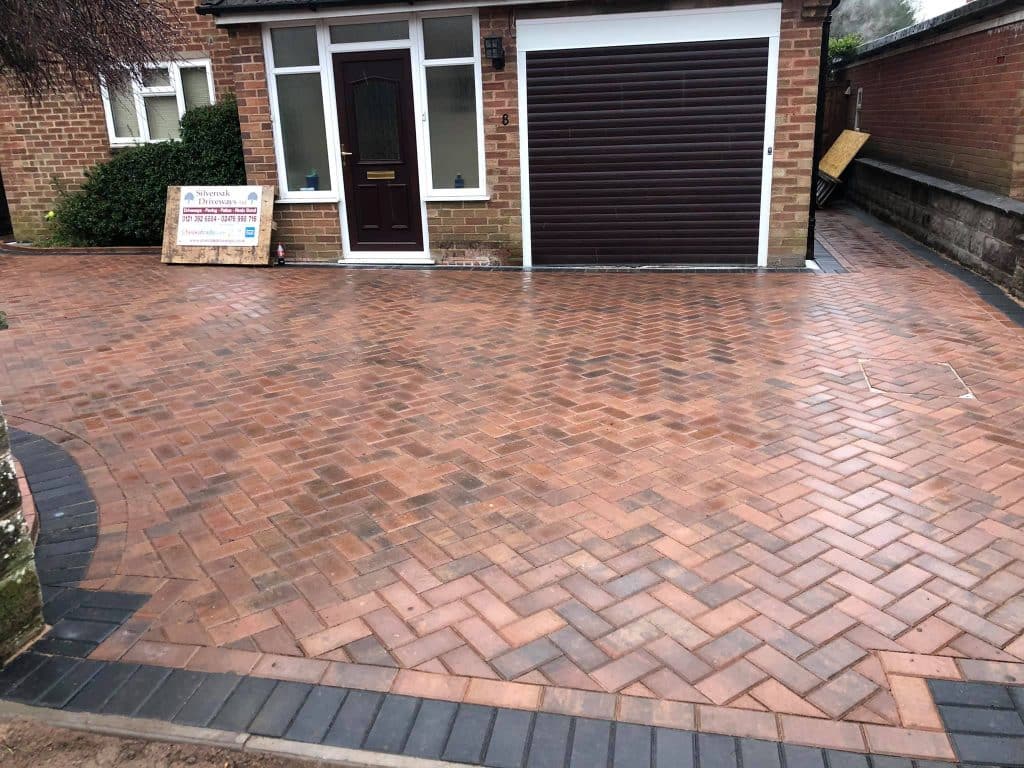Your driveway is more than just a place to park your car—it serves as an essential part of your home’s overall functionality, aesthetics, and safety. A well-maintained driveway enhances the exterior of your property, providing a smooth and stable surface for vehicles, your loved ones and guests alike. However, driveways don’t last forever; they deteriorate gradually due to daily wear and tear, exposure to the elements, and underlying structural issues. Unfortunately, many homeowners overlook the early warning signs of damage, only realising there’s a problem when costly repairs or full driveway replacements become necessary.
By identifying these subtle but critical warning signs early, you can take proactive measures to maintain your driveway and extend its lifespan. Addressing minor issues before they worsen not only saves you money but also ensures the safety and long-term durability of your driveway. This guide will help you recognise five hidden signs that your driveway may be quietly falling apart.
Hidden Sign #1: Hairline Cracks and Surface Fractures

Small cracks in your driveway may seem insignificant at first, but they are often the first indication of deeper structural issues. Over time, weather exposure, heavy vehicles, and natural wear and tear can cause these hairline fractures to widen, leading to serious damage.
Cracks allow water to seep in, which can expand during freezing temperatures, worsening the problem. Left untreated, these fractures weaken the driveway’s foundation, making full driveway replacement inevitable. If you notice cracks appearing, it’s time to consider professional driveway maintenance tips to prevent further deterioration.
Hidden Sign #2: Pooling Water and Drainage Issues
If you see puddles forming on your driveway after it rains, this could be a sign of underlying driveway drainage problems. Poor drainage can cause significant structural damage by weakening the base layers beneath the surface.
Water that isn’t properly diverted can erode the foundation, leading to cracking, sinking, and even moss or algae growth, which makes the surface slippery and hazardous. For a deeper dive into effective driveway drainage, see the Paving Expert drainage guide. The best solution depends on your driveway type—whether it’s a resin driveway, paved driveway, or concrete. To avoid long-term issues, consider speaking with an expert in driveway maintenance and repair, or Silver Oak Driveways, to ensure proper drainage solutions are in place.
Hidden Sign #3: Uneven or Sinking Surfaces

A driveway that appears lumpy, uneven, or has sections that seem to be sinking is more than just an aesthetic issue—it’s a structural problem that needs attention. Driveway sinking repair is often required when soil erosion, poor installation, or water damage weakens the foundation. If replacing the surface is on the cards, make sure you stay on the right side of local rules by consulting Homebuilding & Renovating’s driveway planning guide.
In extreme cases, subsidence can occur, where large sections of the driveway sink significantly. If left unaddressed, this can lead to tripping hazards and vehicle damage. If you spot even minor dips, consulting a professional for driveway replacement or repair is highly recommended.
Hidden Sign #4: Crumbling Edges or Driveway Borders
The edges of a driveway are just as important as the main surface, yet they’re often overlooked. Crumbling edges usually indicate that the driveway material is deteriorating or that the structure was not adequately reinforced during installation.
Weakened edges can lead to larger cracks and breakages, further compromising the driveway’s integrity. Whether you have a resin bound driveway or a block paved driveway, maintaining strong edges is crucial for longevity.
Hidden Sign #5: Surface Discolouration and Stains
If your driveway has significant discolouration, stubborn oil stains, or patchy fading, it may be an indication of material degradation. While some stains are purely cosmetic, others can signal deeper issues like chemical damage, excessive water absorption, or weakening of the driveway surface.
For example, Porous driveways that soak up oil and rainwater can deteriorate quickly; if you’re ready to resurface, consider switching to permeable paving for a greener, better-draining finish. If your driveway is experiencing persistent staining or fading, consider professional evaluation to determine whether repair or full driveway replacement is needed.
When to Seek Professional Assistance

Recognising these signs early can save you money and prevent further damage, but how do you know when it’s time for professional intervention? If your driveway shows multiple warning signs—such as widespread cracking, pooling water, uneven surfaces, or crumbling edges—it’s a clear indication that repairs or a full replacement may be necessary.
Neglecting these issues can lead to higher costs, safety hazards, and even reduced property value. Consulting experts like Silver Oak Driveways ensure a thorough assessment and the best solution for your specific driveway type, whether it’s resin-bound, block paving, or another material.
Your driveway plays an essential role in your home’s functionality and aesthetic appeal. Identifying early signs of deterioration—such as cracks, water pooling, uneven surfaces, crumbling edges, and discolouration—can prevent costly repairs and extend the lifespan of your driveway.
At Silver Oak Driveways, we specialise in high-quality driveway solutions, including resin driveways and paved driveways in Birmingham and more. If you’ve noticed any of these warning signs, don’t wait until the problem worsens—contact us for a free professional driveway assessment and expert advice.
